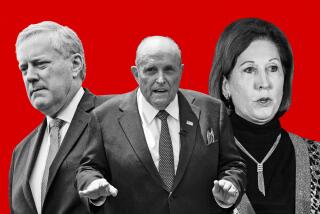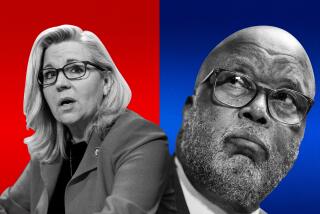Medicare Reform Panel Faces Formidable Odds
- Share via
WASHINGTON — With Friday’s appointments by President Clinton and House Minority Leader Richard A. Gephardt (D-Mo.) to the high-profile commission charged with overhauling Medicare, attention shifted to the group’s challenging mission--and the philosophical and partisan differences sure to make it more difficult.
Medicare, the government’s health insurance program for the elderly and disabled, covers about 38 million Americans. But with the ratio of retirees to workers increasing with the aging of the baby boom generation, Medicare is running out of money. Without significant changes, the program could be broke by 2010.
Among the measures discussed for reforming the program are increased premiums, reduced benefits and a higher eligibility age. The commission, established by last year’s balanced-budget deal, is supposed to recommend changes to Congress by March 1, 1999.
Even though the chairman’s seat remains to be filled, some commission members already were limiting possible solutions.
Republicans, who hold eight of the panel’s 17 seats, oppose any increase in payroll taxes to fund the program. House Speaker Newt Gingrich (R-Ga.) went so far as to demand a no-increased-taxes pledge from his appointees.
*
That would require most of the economizing in the program to fall on beneficiaries through higher out-of-pocket costs and perhaps raising the eligibility age to 67.
Commission Democrats--who also hold eight seats--are divided, with some opposed to passing on more costs to beneficiaries and others willing to divide the pain between workers and the elderly.
Medicare pays about 50% of the elderly’s medical bills, with the remainder coming from the beneficiaries themselves, supplemental insurance plans or Medicaid.
A key barometer of the tensions is that Clinton and the Republican leaders, who by law must agree on the chairman, have been unable to do so. Senate Republicans and Clinton are comfortable with Sen. John B. Breaux (D-La.). But House Republicans have proposed Rep. Bill Thomas (R-Bakersfield) to share the job as co-chairman.
That idea was not greeted warmly by the White House, and there is a stalemate.
The divisions are likely to make it more difficult to come up with a workable solution. Compounding the situation is the lack of a need to take immediate steps to change the program, because the balanced-budget bill reduced Medicare spending enough to extend its solvency until 2008. And by balancing the budget, lawmakers removed the need to find savings in Medicare to help reduce the deficit.
*
“It’s going to be very difficult for this commission to get something done, because the two forces that have been driving Medicare reform have disappeared,” said Robert D. Reischauer, a senior fellow at the Brookings Institution, a nonpartisan think tank.
The portion of Medicare that pays for hospital bills is financed by a 2.9% payroll tax split between workers and employers. It is running out of money. Beneficiaries’ premiums cover 25% of the costs of Part B, which pays doctors’ bills; the balance comes from general tax revenue.
The commission members named by the president Friday were Laura D’Andrea Tyson, his former chief economic advisor; Bruce Vladeck, his former director of the Health Care Financing Administration, which oversees the Medicare program; Stuart Altman, a health economist at Brandeis University; and Anthony Watson, who runs the Health Insurance Plan of New York, a large health maintenance organization.
Gephardt named Reps. John D. Dingell (D-Mich.) and Jim McDermott (D-Wash.). Sens. Bob Kerrey (D-Neb.) and John D. “Jay” Rockefeller IV (D-W.Va.) were appointed by Senate Democratic leader Tom Daschle of South Dakota.
More to Read
Get the L.A. Times Politics newsletter
Deeply reported insights into legislation, politics and policy from Sacramento, Washington and beyond. In your inbox twice per week.
You may occasionally receive promotional content from the Los Angeles Times.










